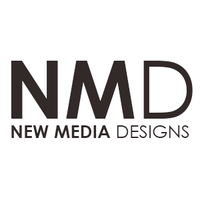In today’s rapidly evolving business landscape, artificial intelligence has become an integral part of customer relationship management (CRM) systems. Salesforce’s Einstein Trust Layer stands as a cornerstone of secure, ethical AI implementation within the enterprise CRM environment. This comprehensive framework ensures that AI-driven decisions remain transparent, secure, and compliant while delivering powerful business insights.
What is the Einstein Trust Layer?
The Einstein Trust Layer is Salesforce’s robust security and governance framework that underlies all Einstein AI functionalities within the Salesforce ecosystem. It acts as a protective shield that ensures AI operations maintain data privacy, security, and ethical standards while delivering intelligent insights and automation capabilities to organizations.
Core Components of the Einstein Trust Layer
1. Data Protection and Privacy
- End-to-end encryption of AI training data and model outputs
- Granular control over data usage in AI models
- Region-specific data handling compliance (GDPR, CCPA, etc.)
- Automated data anonymization and pseudonymization
2. Model Governance
- Comprehensive audit trails for AI model decisions
- Version control and model lineage tracking
- Bias detection and mitigation tools
- Model performance monitoring and validation
3. Access Control
- Role-based access to AI features and data
- Multi-factor authentication for sensitive AI operations
- Detailed logging of AI feature usage
- Custom permission sets for AI functionality
Enterprise Use Cases and Implementation Examples
Use Case 1: Financial Services Company
A global investment firm implemented Einstein Trust Layer to enhance their customer service operations while maintaining strict compliance requirements.
Implementation:
- Deployed Einstein Case Classification with sensitive data filtering
- Established automated compliance checks for AI-generated responses
- Implemented audit trails for all AI-driven decisions
- Result: 40% faster case resolution while maintaining 100% compliance with financial regulations
Use Case 2: Healthcare Provider Network
A large healthcare network utilized Einstein Trust Layer to improve patient engagement while protecting sensitive medical information.
Implementation:
- Configured Einstein Prediction Builder with HIPAA-compliant data handling
- Set up automated PHI detection and masking
- Implemented secure AI-driven patient communication channels
- Result: Improved patient engagement by 35% while maintaining strict HIPAA compliance
Use Case 3: Retail Corporation
A multinational retail chain leveraged Einstein Trust Layer to personalize customer experiences while protecting consumer privacy.
Implementation:
- Deployed Einstein Next Best Action with privacy-preserving features
- Established customer data consent management
- Implemented regional data handling rules
- Result: 25% increase in conversion rates while ensuring GDPR compliance
Best Practices for Enterprise Implementation
1. Initial Setup and Configuration
- Conduct thorough security assessment
- Define clear AI governance policies
- Establish data handling protocols
- Create role-based access control matrices
2. Ongoing Management
- Regular security audits and updates
- Continuous monitoring of AI model performance
- Periodic review of access permissions
- Regular staff training on AI security protocols
3. Compliance and Documentation
- Maintain detailed documentation of AI operations
- Regular compliance checks and updates
- Incident response planning
- Stakeholder communication protocols
Benefits of Einstein Trust Layer
Security Benefits
- Enhanced data protection
- Reduced risk of data breaches
- Improved compliance adherence
- Better audit capabilities
Business Benefits
- Increased customer trust
- Faster AI implementation
- Reduced compliance costs
- Improved operational efficiency
Key Integration Considerations
Technical Requirements
- Compatible Salesforce editions
- Necessary security protocols
- Infrastructure requirements
- Integration with existing systems
Resource Planning
- Required expertise
- Training needs
- Implementation timeline
- Budget considerations
Conclusion
The Einstein Trust Layer represents a crucial component in modern enterprise AI implementation within Salesforce CRM systems. Its comprehensive security and governance framework enables organizations to leverage AI capabilities while maintaining the highest standards of data protection and compliance. As AI continues to evolve, the Trust Layer’s robust architecture ensures that enterprises can confidently deploy AI solutions while protecting their most valuable assets – their data and customer trust.
Looking Ahead
As AI technology continues to advance, the Einstein Trust Layer will likely evolve to address new security challenges and compliance requirements. Organizations implementing this framework today are well-positioned to adapt to future developments in AI governance and security standards.
